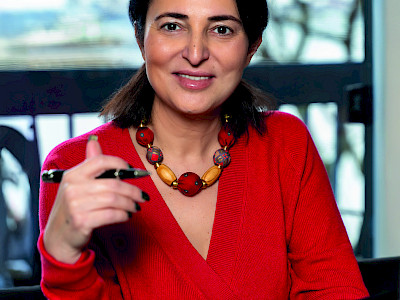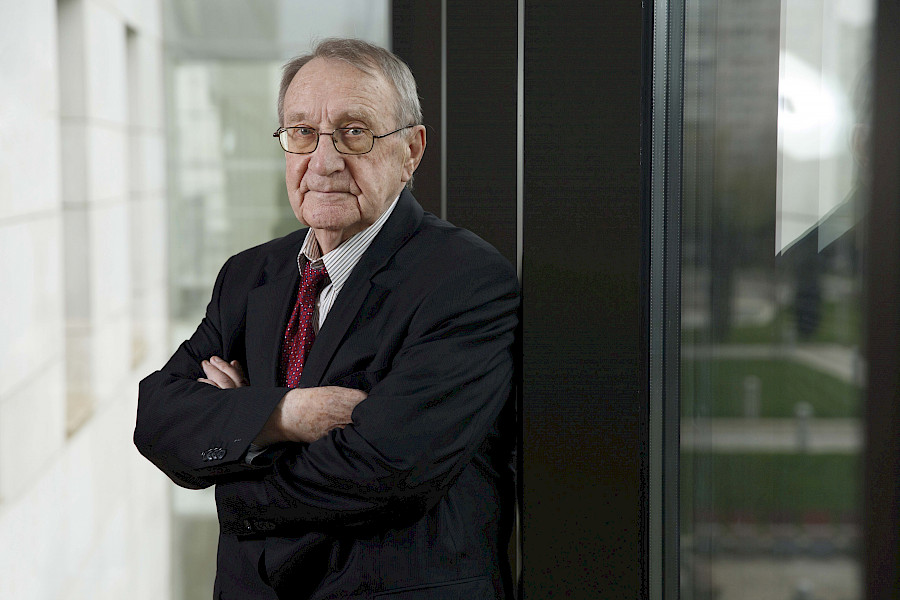
His teachers were legendary physicists Landau and Artsimovich, at the age of 36 he became the youngest academician in the Soviet Union and for 15 years he chaired the Space Research Institute of the USSR Academy of Sciences. A world-famous scientist, one of the most authoritative specialists in the field of plasma physics, Roald Zinnurovich Sagdeev led a number of space projects that have contributed to the restoration of international cooperation among scientists after the failure of the USSR in the Space Race. During the years of reconstruction he was Gorbachev's adviser at the fateful summits, he stood at the origin of the international movement of scientists against the nuclear threat. Today Roald Zinnurovich is a member of the academies of sciences of many countries, a citizen of the Republic of Azerbaijan and a consultant to its space program.
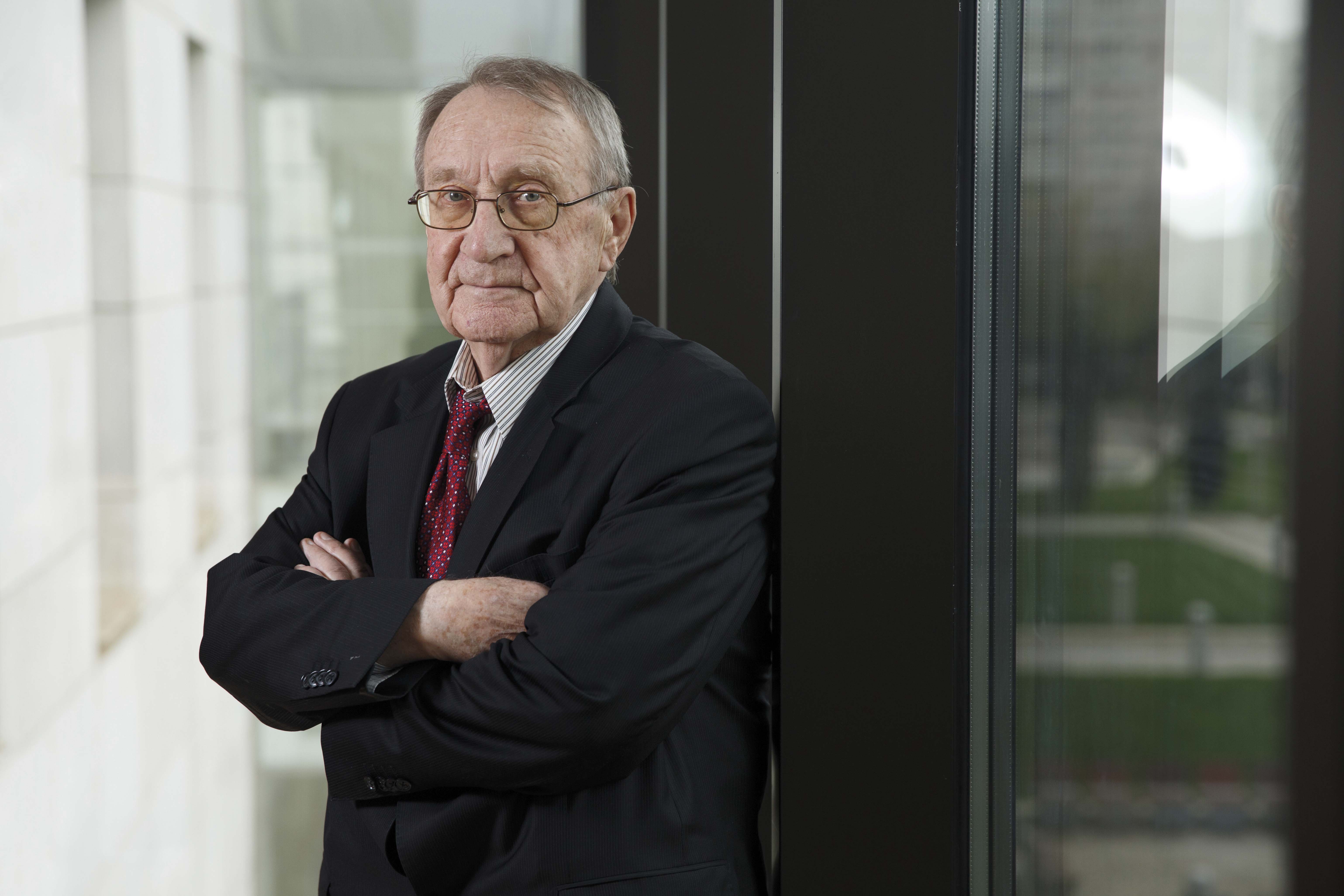
Why were you given such an exotic name as Roald?
For the record, I've always been interested in the Arctic. You know why? A name calling! My parents named me Roald after the famous Norwegian traveler, polar researcher Roald Amundsen. His team was the first to reach the South Pole on the dog sled, he was the first to visit both poles of our planet. So I dreamed of getting there as well. And, by the way, I was partially compensated for my unfulfilled dream when two of our vehicles flew towards Halley's Comet: they flew past the comet just under the south pole of its monolithic, irregular body...
According to your biography it seems that everything in your life worked out by itself. For example, Landau's intervention when after the institute you were distributed to the "mailbox" in the Urals...
Nothing happened by accident. My father was a research assistant, he was appointed to important state posts, he even was Deputy Chairman of the Council of Ministers for a while. And I, a schoolboy, observed his life: all this fuss, organizational work, bureaucracy... And I wondered: what did he waste his time on? After all, he studied at grad school, he was a talented mathematician, who was also teaching. So when they offered me to become secretary of the Komsomol Committee, I flatly refused. Even then, I only wanted to dedicate myself to science.
And you've held this position all your life?
There was a moment when I had no other option: I really didn't want to become director of the Space Research Institute, but I was forced to.
But the Institute is still grateful to you...
My position cost me a lot. Being essentially an economic operator, I became much less engaged in science, and these were perhaps my most productive creative years ‒ I just turned forty. Before I left the Soviet Union I was director for more than 15 years.
With you the institute became a real "window to Europe". Besides, everyone were sure that you will categorically stay away from military projects.
Yes, but sometimes I say to myself with regret: wish I would spend all this energy on science! Let me tell you a story. I was sitting in my director's office once. As a rule, people addressed me regarding work meetings, the supply of appliances, construction, financing... And so one of my idols from the world of science ‒ academician Zeldovich comes in. He was an amazing physicist, who was researching the black holes. He sits down and says: "Roald, I brought you copies of my new works", ‒ he holds a stack of his works in his hands, which he has published recently. I became so sad all of a sudden, by thinking that people can boast of their creative achievements, while I do what?.. My eyes caught a paper which was brought to me earlier for signature: "To allow a carrier of sewage, mister ‒ I do not remember who ‒ have a side job as plumber". And while Zeldovich was talking about his scientific achievements, I quietly called the assistant and told her: "Please print out the order that I signed in twenty copies, put in a folder for our institute preprints and bring here". When she did, I pulled out one copy, signed: "To dear Yakov Borisovich as a memento!" ‒ and handed it over to Zeldovich. He, of course, bursts out laughing. And the next day I got the calls asking: "Can you send one to me?".
Roald Zinnurovich, I cannot help but ask: how did you end up in Azerbaijan?
I've been here a lot since Soviet times. Azerbaijan has repeatedly won social competitions between the Union Republics, and once I was invited among the big delegation to present the Order of the Red Banner. I remember the gathering of the general designers, for some reason, there were many specialists from the space field. I just became director of Space Research Institute at that time. I met Heydar Aliyevich at the award ceremony. And afterwards a small cosmic center was created here, it had different names at different times: the Scientific Center "Caspian", the NGO "Space Research"... The founder was space enthusiast Tofik Kazimovich Ismailov, unfortunately, he died later in helicopter above Karabakh. From 1980 to 1985 I regularly came to Baku, and there was no time when Heydar Aliyevich did not invite me to visit. Well, in 1990, I married Susan Eisenhower and left... What would happen to the Union was unclear then, and we decided to stay in Washington for the moment. There I met the Ambassador of Azerbaijan ‒ the current rector of Azerbaijan Diplomatic Academy, Hafiz Pashayev and we became friends. He said that he had a dream to create a Western-style college in Baku ‒ and he created a whole diplomatic academy! After I retired, I came to Baku already as a visiting professor. You probably aware that in the West, especially in America, professors do not retire, but receive emeritus status. I still even have a lab with employees at the Maryland University. However, I no longer receive a salary, but this is right ‒ we need to give way to young generation.
How did your collaboration with NASA begin?
When the ISS was created. It was in the first years after I moved to the United States, there were still discussions whether to cooperate with Russia or not. The NASA administrator that I was friends with, regularly invited me as a consultant, my wife was also one of the consultants. This lasted until about 2003, then I passed into NASA's grant recipient status. NASA, first of all, is an administration: their professional staff are mainly involved in the organization of research, and the research itself is carried out by scientific institutions and advanced university laboratories. They hold competitions and give grants on subjects of interest of NASA. The whole time I was in the States, my main occupation was working with NASA grants, and I still participate in their projects.
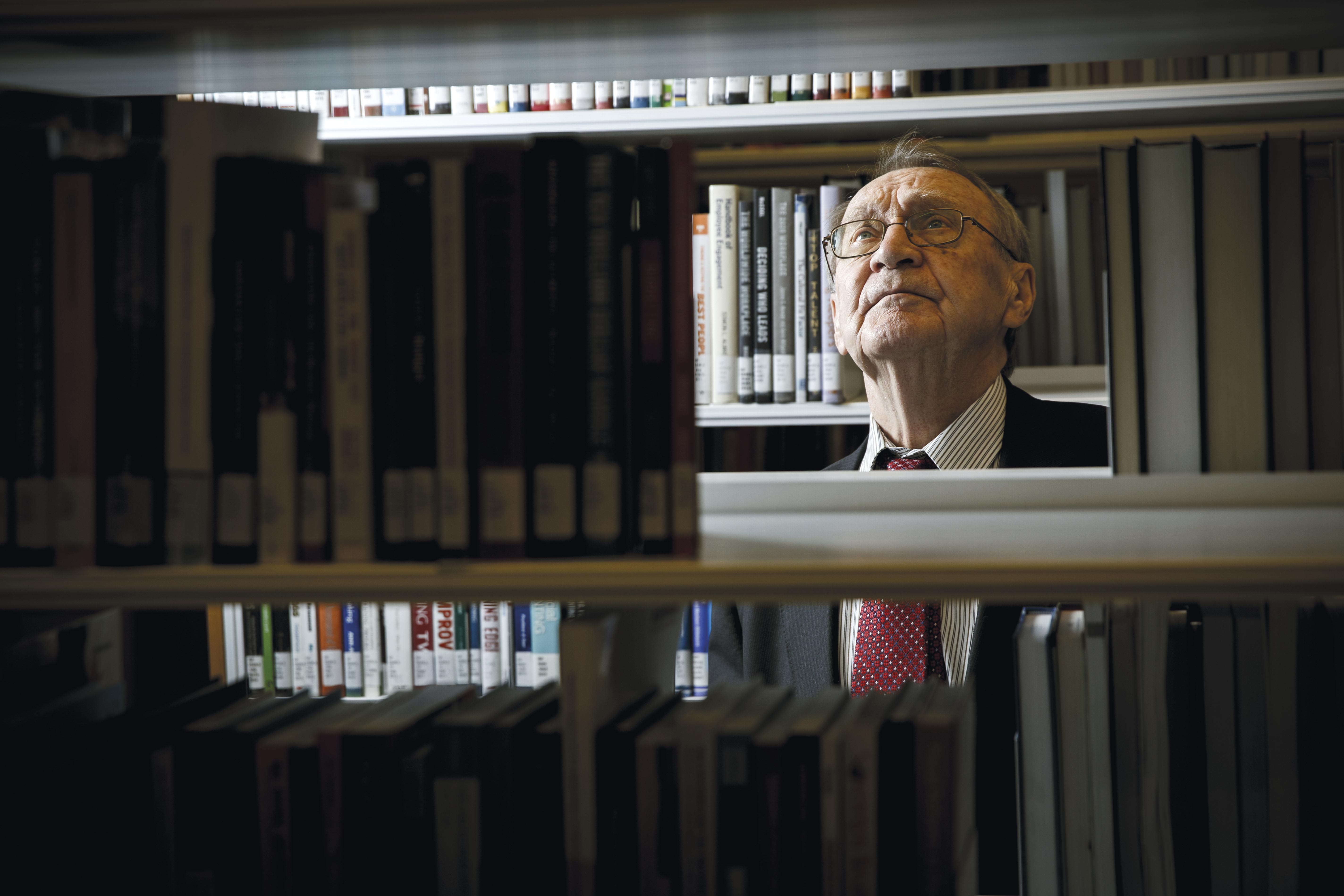
Tell us more about your projects.
First there was ISS project ‒ its making, then training of employees. And everything resulted in the development of a very interesting scientific experiment. The most difficult and expensive instrument ever lifted up into space was prepared for installation at an international station; It still stands there. The device was collected in Swiss CERN. It is called AMS which stands for Alpha Magnetic Spectrometer ‒ and it registers particles of very high energies coming from space. Just imagine: the station flies and continuously registers different types of particles, analyzes each hit of an unknown energetic charged particle, all kinds of detectors are standing... For comparison: there is the hadron collider on Earth which helped to discover the "particle of God", and our AMS is something like that, but in space. I'm part of this experiment too. Another experiment is in the process: we have won a grant to install one interesting instrument on the artificial satellite of the Moon, which NASA launched in 2009 and it is still flying.
What for?
Scientists have always wanted to understand the Moon better, to make its full space footage in high-definition, to look from the satellite and to define chemical features of different substances on different areas of the moon surface, to look at X-rays, in all types of radiation... The satellite flies very low ‒ only 50 kilometers from a surface. And the idea is that sooner or later the Moon will become an intermediate space station, some kind of a springboard for more long-distance flights. That's why we need to understand better, how all this is going to happen.
Sooner or later means when?
I think that until 2030 we will hear about the creation of a small springboard on the Moon. At first, probably without humans, with robots; then, perhaps, there will be flights of crews for two or three months, like, for example, to Arctic stations. NASA, Russia, China and the European Space Agency, meaning all Europe, have already stated such plans.
Currently, Space X, led by Elon Musk, is actively preparing a flight to Mars. And you said in an interview that it's still too early to fly to Mars. Why?
First, it's extremely expensive. The project requires at least several hundred billion dollars. NASA's budget is approximately twenty billion a year. Which means, it is necessary to shut down everything else and dedicate ten-twenty years only to this project. Today any issue can be solved easier and cheaper with the help of robots, without human participation. And why so much attention is attached to human flights is a political, psychological question. As it happens, Gagarin was the first to fly ‒ and the gate of romance opened, everyone became very interested in it. But once Khrushchev and then the Americans saw that it aroused great interest, it also attached a political importance. Industrial giants became involved, people started to gain benefit from it. So a circle of interested persons, organizations appeared ‒ and one thing led to another.
What about dreams of an intergalactic colony? The idea that someday people will leave the Earth, having exhausted oxygen reserves, and go to search for a new habitable planet?
Well, Elon Musk, for example, speaks openly that his interest in Mars is to create a "spare airfield" there in case a tragedy happens with Earth. But personally, I think it's a completely crazy idea. There is practically no atmosphere on Mars and temperature conditions are much worse than on Earth. Elon Musk is a very stubborn fantasist, but he has the right to be one because he spends his own money. One of his ideas is to create the atmosphere on Mars, by detonating hydrogen bombs on poles where ice caps are accumulated: allegedly then they will melt and the oxygen will be separated into the atmosphere. But this idea is on a fantasy level yet, there's no calculations. Well, let a man have his dream.
Tell us what modern physics is about? Just recently, everyone was talking about the searches of antimatter...
This is just about the ISS. Sometime in the early 1930s, a famous quantum revolution happened in physics, and mathematical calculations led physicists to thoughts that any physical particle in nature should have an antipode. Everything that chemists and physicists know about nature suggests that symmetry is one of its universal properties. Then, according to the logic of things, the global antipode of the matter should have an antimatter. The question is, why our universe should consist only of matter? Should there be at least a small impurity of antimatter or not? Let's go out into space with instruments and detectors catching everything that flies around and see. That's how the idea of our experiment came up. But over time, interest in the search for antimatter diminished and another topic appeared, connected with already mysterious "dark matter". The movement of stars in galaxies resembles the movement of planets around the Sun. The only difference is that there is no central body in the galaxy that plays the role of the Sun, but there is some center of gravity around which the stars rotate. The laws of planets rotation around the Sun were discovered already in 17th century, but when they began to be applied to the rotation of stars around the center of the galaxy, it turned out that everything is not so simple. To explain how this happens, we had to make the assumption that, apart from the usual substance we see, which the stars consists of, interstellar gas and plasma, there is also something else in it that we do not see, but its presence is felt by the force of gravity affecting the rotation of stars.
So it warps the space?
Warps as well. Since about the 1930s, there have been many guesses, theories, but there is no concrete answer. For the last 15 to 20 years scientists have experimented a lot trying to detect this "dark substance", and our instrument on the ISS is now used as one of the platforms for its search. The most interesting thing is that we do not know what it is, but we know the mass of it: about ten times more than the mass of an ordinary substance! That is, in our galaxy, including the Solar System, other stars and all known space objects, we make up only one tenth of the mass, and the rest... somewhere some bodies fly, large or small – and we don't even know it.
And is there this mysterious dark matter in the solar system, too?
It is somewhere closer to the central part of our galaxy. When we launch "Voyagers," they experience only the gravity of the Sun and the surrounding planets. That is, it can be said that there is nothing like this in the solar system.
Our universe has a beginning – means, it will also have the end?
What we call the consequences of the Big Bang can be observed now, even some telescopes can get information about a time close to the estimated time of the Big Bang, and it happened about 13 billion years ago. We know the universe was very dense and hot. As for the future, there was complete uncertainty about this issue until about 2000, but then several astrophysicists independently of each other discovered something like anti-gravity. That is, at a certain distance, the running away galaxies, instead of attracting each other, begin to push away. It is absolutely inexplicable in terms of modern physics because we are only familiar with gravity ‒ falling bodies, for example, to Earth, and this is some opposite phenomenon. By analogy with "dark mass" it was called "dark energy", the Nobel Prize was already presented for its discovery. So, although we do not fully understand the origin of this phenomenon – and to solve it is also incredibly interesting – today it is possible to say that the universe will disband faster and faster.
What will be its logical ending?
Everything will run endlessly and eventually get cold, freeze. But every particular star, like our Sun, has its end. It is already known that the Sun, for example, will extinguish in seven to nine billion years. Astronomers have already observed such cases with similar stars.
And how do you feel about the theory of evolution, the origin of the living from the non-living?
This is one of the main mysteries ‒ how life in the universe appeared. Until it is explained, the origin of the very first single-celled beings from a purely chemical environment is modeled, it will give thoughts to theories that there is still Someone controlling these processes. And apparently it's not by chance that many great scientists believed this Someone really existed. I think the mystery of "dark matter" and "dark energy" will be solved in the next few decades... Or maybe earlier. And only the question of the origin of life will remain.
And do you believe that everything is predetermined?
Depends on what you call "everything"... The human's fate is influenced by many factors. But the fact that any living organism is born and has a finite time of existence is a hundred percent. I remember when I was a child and first discovered that man was mortal, Dad comforted me: don't worry, while you grow up, scientists will figure out how to make people immortal.
Would you like such cure to be invented?
Probably, it would be wrong: still life is arranged that way so that the new should replace the old. Mutations lead to evolution, you can't just stop everything. I think it's never going to happen. Physics, and all natural science specialists adhere to such philosophy: there is a law of growth of entropy, and it is completely universal. Growing entropy presents slag, chaos, global warming, air emissions... It is steadily growing ‒ and there comes a moment when everything needs to start over.
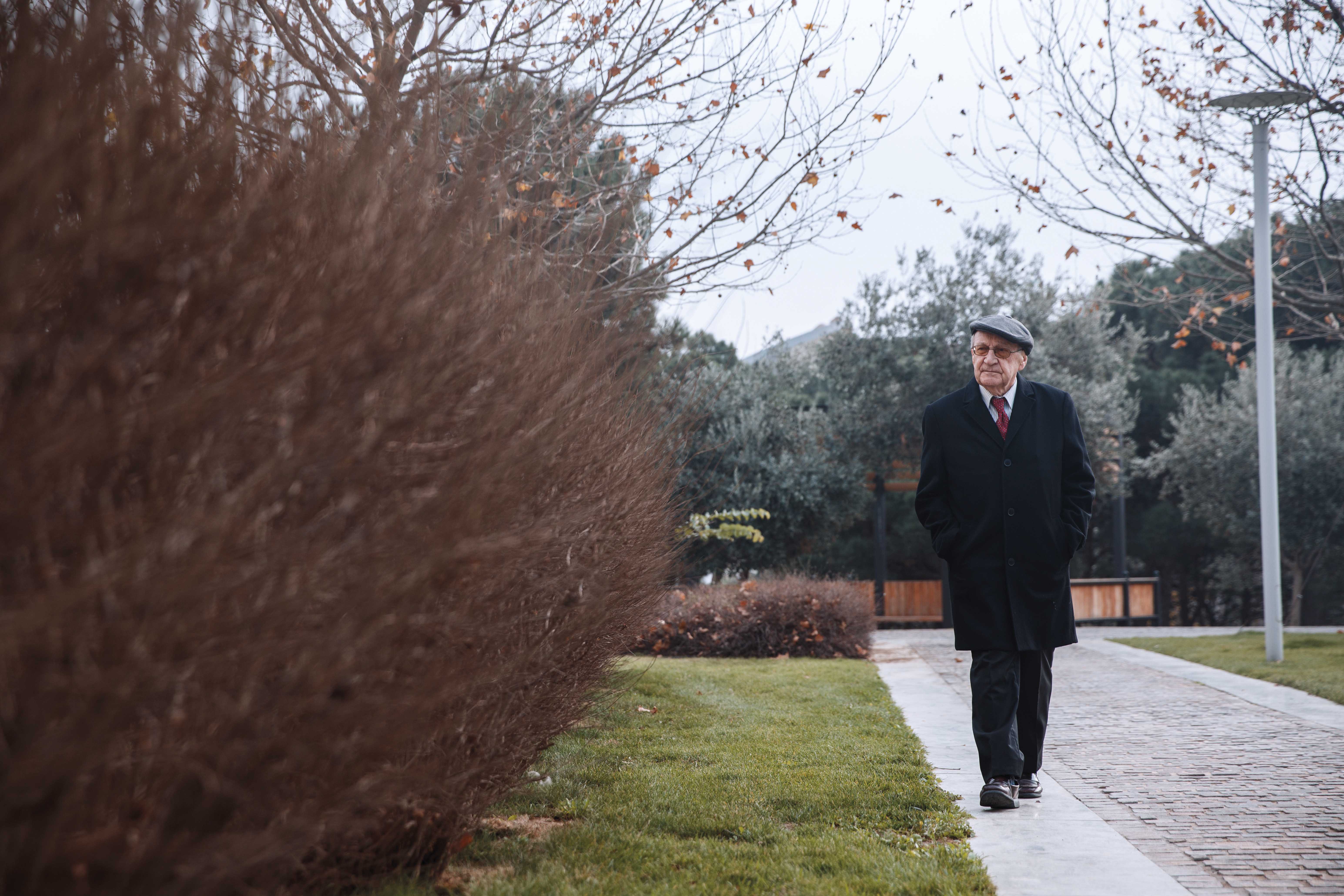
Do aliens exist?
Since there's life on Earth, it is foolish to deny that it can exist on some other celestial bodies. There is now a whole international program to search for planetary systems near other stars. Files of these planets are created, scientists try to understand whether there are such planets among them where the conditions such as temperature, the illumination and availability of water, would be close to ours, terrestrial. The number of discovered planets has probably passed for a thousand. And among them, there are maybe five or a dozen similar to our Earth.
Why are they searching them?
So that when the next generation telescopes appear, you can say much more about water, atmosphere, oceans on those planets... It’s going to happen pretty soon. The first of such telescopes, absolutely stunning one in a year or two will already be launched by NASA!
And what will that give?
So far, it's purely scientific curiosity, but you know Yuri Milner? A venture capitalist, who three years ago announced that he was funding a flight to the closest star, near which he had recently discovered a pair of planets, something similar to Earth. The flight will be without a human: very small, actually a nano chip, with a small camera inside and a transmitter for communication with Earth. He wants to disperse it to a very high speed ‒ 1/5 of the speed of light, and then this device will fly to the nearest star system for twenty years. I also became a participant in this project, Milner himself called me at my Baku number, and we have already met once. He lives in Silicon Valley. The structure of this project is interesting. It is led by Milner, Zuckerberg and until recently was attended by Stephen Hawking. Then there are senior advisers ‒ chief analysts, 10 ‒ 15 people ‒ I am among them; then ‒ working group. I have already set a task for my employees, and an important article has already come out on the subject, prepared, by the way, in Baku.
Many ideas have been realized in Silicon Valley. Does Azerbaijan have a chance to become a space power?
In a way, Azerbaijan is already a space power: it already has three good satellites, they are directed by a wonderful young team of Azercosmos specialists. It would be worth adding to this something done in Azerbaijan. And that's what we're doing right now. We already received a grant, and this is very important, because during working process people learn, and the new ideas appear. I would even expand the question: does Azerbaijan have a chance to become a strong space power not only at the expense of oil and gas? And as for the space sphere, it seems to me that after all it is necessary that in this sphere Azerbaijan has some role models ‒ worldwide famous people from science field. There are many very interesting scientists from Azerbaijan who have spread around the world and take leading positions in various fields of science, including space science. In particular, in terms of "dark energy" there is one such specialist, he is one of the five best in this field: Azerbaijani from Tabriz, Nima Arkani-Hamed, he is 46 years old. Though, he hasn't got Nobel prize yet, but he's got everything ahead of him. In any case, he already got the Milner Award.
Interview by Sona Nasibova
Photo by Parviz Gasimzadeh


